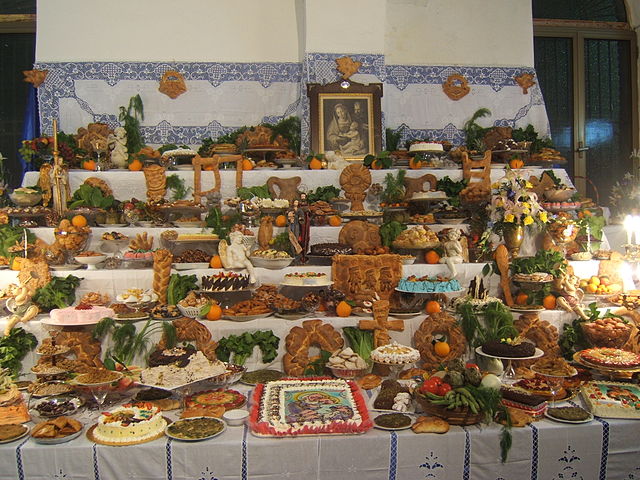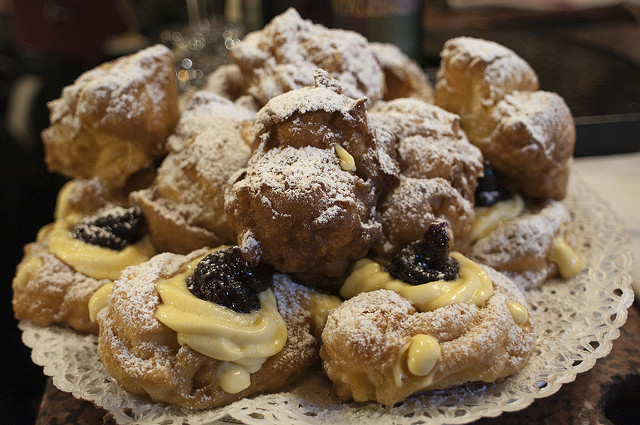It is worth including Sicily in your personalized tours of Italy in March to see the Feast of San Giuseppe festivities (La Festa di San Giuseppe). Although the religious feast is celebrated across the country on March 19, Sicily has preserved some of the oldest traditions connected with San Giuseppe, its patron saint.

The roots of the La Festa di San Giuseppe can be traced back to the Middle Ages when a severe draught hit Sicily and people prayed San Giuseppe to help them. Rain came, the harvest was saved and since then, to show their gratitude, Sicilians prepare huge tables, la tavola di San Giuseppe, piled up with traditional foods, baked goods, wine and decorated with the saint’s sacred images, flowers, and candles. In many towns in Sicily, women bakes and cook for several days coming up to the feast. On March 19, they open their doors for anyone to come in to the house to see the tavola di San Giuseppe and taste the food. The tradition shows Christian spirit and charity and, in the old days, many less-fortunate and poor people were invited to feast during the celebrations.

During your personalized tours of Italy you will be able to discover the various dishes that are served during the feast: pasta with sardines and fennel, fried broccoli and thistle, frittata, cheese and salami, such traditional baked sweet goodies as cannoli, cassate, pignolata. Especially for the occasion, housewives bake traditional bread in various elaborate shapes: braids, crosses, wreaths.
In some towns, bonfires are lit to celebrate the end of winter and burn old furniture and junk. Across Italy, in this period you will find a traditional pastry of San Giuseppe. They are called differently from region to region: zeppole in Campania, sfincia in Sicily, bignè in Rome, but the recipe is more or less the same everywhere: delicious balls of fried or baked dough filled with custard, jelly, or rich ricotta cream sometimes decorated with candied citrus peel and crushed pistachios.
Photos by: Wikipedia/Creative Commons, Luca Sartoni.


